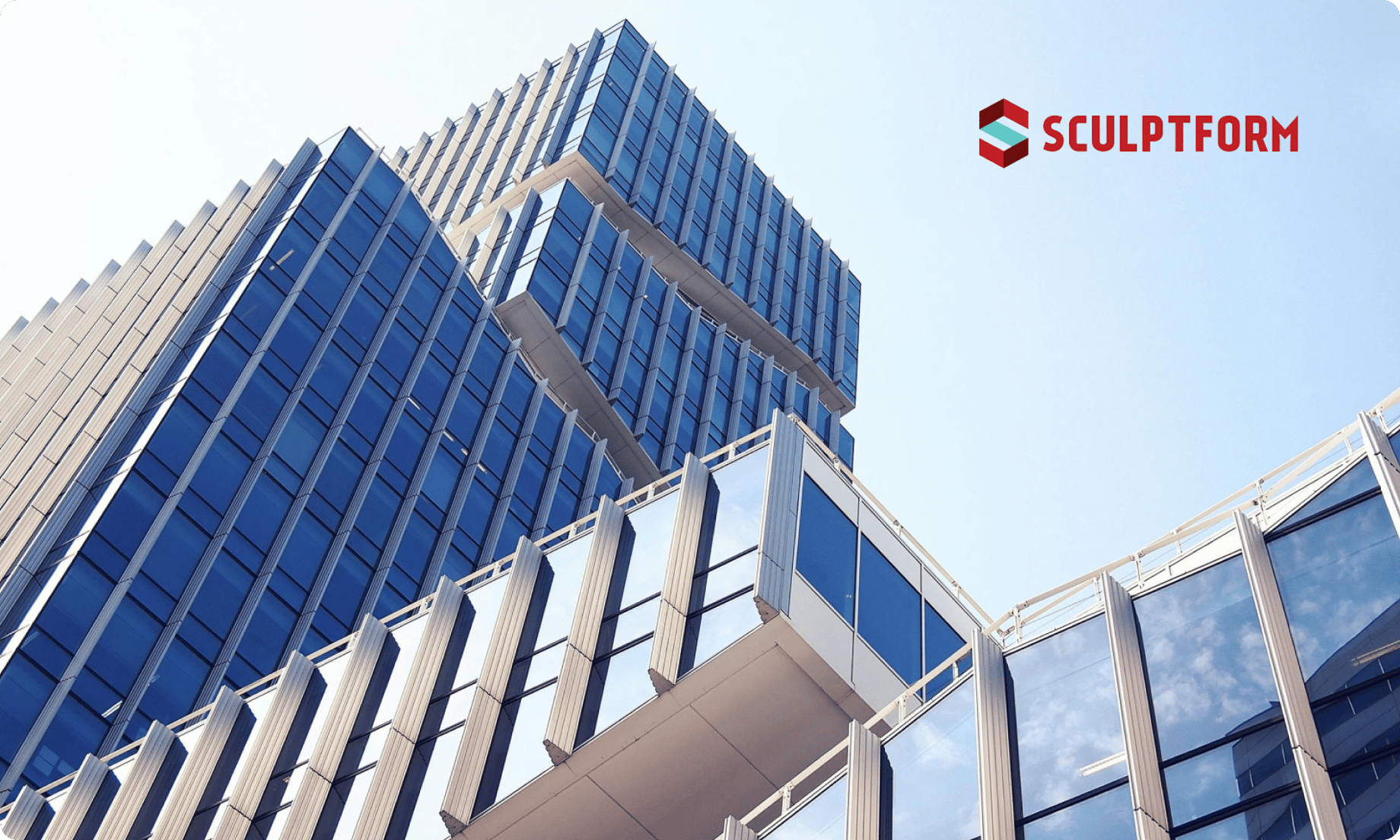
"As we create new products, we can create new designs in One Click LCA and continually assess them in detail. So as we're going through the product development stages and swapping materials in and out constantly, we can be doing that in One Click LCA and seeing what impact that has on the embodied carbon content."
— Troy Springthorpe, Quality Control Manager at Sculptform
Sustainable architecture is the goal for Sculptform, and is achieved by effectively integrating product life-cycle assessments (LCAs) and environmental product declarations (EPDs) into their business model. This approach not only aligns with global sustainability trends but also meets the increasing demands for eco-friendly building materials.
The importance of product LCAs and EPDs in modern construction
Product life-cycle assessments (LCAs) and environmental product declarations (EPDs) are essential tools for an increasingly sustainability-focused construction industry, offering a detailed analysis of the environmental impact of building materials across their life-cycle. LCAs provide a comprehensive analysis, from raw material extraction through to end-of-life disposal, while EPDs translate product-level data into consumable reports that detail the embodied carbon and other critical environmental information of the materials used.
Identifying high carbon materials
Hear how Sculptform use One Click LCA to generate environmental product declarations (EPDs) and understand the embodied carbon within their products.
Sculptform's sustainability journey
Sculptform’s commitment to sustainability is primarily driven by the tightening of international standards and a noticeable shift in consumer preferences, particularly in markets with rigorous regulatory environments like North America and Europe. These changes have prompted the company to look deeper into the environmental impacts of their products, particularly focusing on their popular aluminum range.
Addressing the aluminium challenge
Aluminum is widely used in construction for its strength and flexibility, but it is also known for its significant carbon footprint, primarily due to the energy-intensive production processes. Sculptform recognized the need to reduce this impact as part of their commitment to sustainability.
Initial assessments and discoveries
Using the One Click LCA software, Sculptform conducted an initial life-cycle assessment of their aluminum products. The results revealed that the majority of the product's carbon emissions came from the raw material phase (A1), particularly the production of aluminium itself. This insight was crucial as it highlighted the most impactful area for potential improvements.
Strategic material substitution
With a clear understanding of the major contributors to their product's carbon footprint, Sculptform embarked on a journey to find lower-carbon alternatives. They shifted to suppliers who could provide low-carbon aluminum, which significantly reduces the energy used in production, often through the use of renewable energy sources or more efficient manufacturing processes.
Results and impact
The switch to low-carbon aluminum had a profound effect on Sculptform’s sustainability mission. The embodied carbon of their products decreased dramatically, making their aluminum products more appealing both from an environmental and a market perspective. The data from the updated life-cycle assessment showed a reduction in carbon emissions of over 70%, a testament to the effectiveness of their targeted material changes.
Deepening internal sustainability expertise
Recognizing the value of understanding and acting upon their carbon impact analyses, Sculptform made the decision to manage their LCAs and EPDs in-house. This strategic decision was aimed not only at reducing costs associated with external consultants, but also at enriching their team's understanding and capabilities in sustainable practices.
Training and development
Sculptform initiated a comprehensive training program for their staff, focusing on the use of LCA tools and the development of EPDs. This empowered their teams to integrate sustainability into every facet of their operations, from design and production to marketing and sales.
Integrating sustainability across operations
The insights gained from ongoing LCAs and EPDs have been instrumental in shaping Sculptform’s operational strategies. They have established a continuous improvement loop, where every product goes through a sustainability assessment during the design phase, allowing for adjustments before final production. This proactive approach ensures that sustainability is considered at every stage of product development.
Reducing embodied carbon in brick manufacturing
Hear how Ibstock Brick use EPDs to understand and reduce the embodied carbon in their materials, enabling them to move closer to their ambitious net-zero goals.
Industry influence and leadership
Sculptform's proactive use of product LCAs and EPDs not only sets a high standard within the architectural solutions industry but also acts as a catalyst for change across the broader market. By demonstrating the practical benefits of these tools, they are actively encouraging other companies to adopt similar sustainable practices.
Sculptform’s strategy aimed at sustainability and market competitiveness
Sculptform’s systematic integration of product LCAs and EPDs into their product development and operational processes acts as a model of environmental stewardship in the construction industry. This strategy not only aligns with global sustainability goals but also enhances their market competitiveness in an increasingly carbon-conscious marketplace. The company’s decarbonization journey presents valuable insights for other firms looking to incorporate environmental considerations into their product design and business practices, and promoting a broader shift towards sustainable construction methodologies.
Creating EPDs with One Click LCA
One Click LCA works with manufacturers across all construction-related industries to create fast, easy, scalable EPDs and meet local and global compliance requirements. The range of One Click LCA EPD tools help sustainability professionals deliver EPDs and carbon footprints, to market and deliver sustainable products.
The EPD Generator allows manufacturers to produce compliant, market-ready EPDs, ensuring compatibility with local requirements such as international certifications like LEED, BREEAM, and DGNB. By offering features like data automation and user-friendly interface, One Click LCA enables sustainability professionals to quickly and accurately meet environmental targets, enhance transparency, and deliver sustainable products to the market.
Carbon Experts Newsletter
Industry news & insights — straight to your inbox
Want to learn more?
Aileen Carroll • Jun 03 2025
Justyna Michalik-Minken • Mar 26 2025
Frida Alfredson • May 09 2025
Laura Drury • Mar 25 2024
